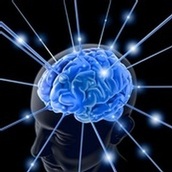Self-administered 15-minute test may spot early signs of dementia
 US researchers have developed a test which can be taken at home to identify the early signs of dementia and Alzheimer's disease
US researchers have developed a test which can be taken at home to identify the early signs of dementia and Alzheimer's disease
The simple 15-minute test has been developed by researchers at Ohio State University.
The research team who asked more than 1,000 people aged 50 and older to take the self-administered SAGE test found that 28 per cent had cognitive impairment, a mild loss of mental functioning.
"What we found was that this self-administered test correlated very well with detailed cognitive testing," said Dr Douglas Scharre, who developed the test with his team at Ohio State University.
"If we catch this cognitive change really early, then we can start potential treatments much earlier than without having this test,” he added.
"We can give the test periodically and, the moment we notice any changes in their cognitive abilities, we can intervene much more rapidly. We are finding better treatments, and we know that patients do much better if they start the treatments sooner than later."
The exam can be completed online or by hand. Participants were tested on such things as what month, date and year it was, verbal fluency, asked to identify pictures and tested on calculations and reasoning. They were also asked to draw to test spatial awareness and tested on their memory ability.
Results can then be shared with physicians to help spot early symptoms of cognitive issues, including early dementia or Alzheimer's disease.
Currently Alzheimer’s is only diagnosed through in depth cognitive testing, but researchers said the simple test worked equally well. It is estimated that four out of five people (80 per cent) with mild thinking and memory (cognitive) issues will be detected by this test, and 95 per cent of people without issues will have normal SAGE scores
Dr Doug Brown, director of research and development at Alzheimer’s Society said: “This is an interesting development, but currently home tests are not a reliable way of diagnosing Alzheimer’s disease, or other forms of dementia. Dementia and Mild Cognitive Impairment are difficult to diagnose, and we need to continue to fund more research into tests like this and other ways that may help improve the accuracy and ease of diagnosis.
“With fewer than half of people with dementia getting a formal diagnosis we need to do all we can to improve this to ensure that people get the treatments and support they deserve. If you are worried about your own or a loved one’s memory you should visit your GP.”
Around 800,000 people in Britain are currently suffering from dementia in Britain with more than a million expected by 2021.
The research was published in ‘The Journal of Neuropsychiatry and Clinical Neurosciences’.
Latest News
 29-Jul-24
Dementia Bus gives carehome.co.uk staff insight into life with dementia
29-Jul-24
Dementia Bus gives carehome.co.uk staff insight into life with dementia
 01-Mar-24
Find out the top care homes in 2024
01-Mar-24
Find out the top care homes in 2024
 21-Mar-23
UK's top care homes in 2023 revealed
21-Mar-23
UK's top care homes in 2023 revealed
 03-Jan-23
carehome.co.uk launches free care helpline
03-Jan-23
carehome.co.uk launches free care helpline
 13-Dec-22
5 mins with Emily Whitehurst, chief operating officer for Constantia Healthcare
13-Dec-22
5 mins with Emily Whitehurst, chief operating officer for Constantia Healthcare